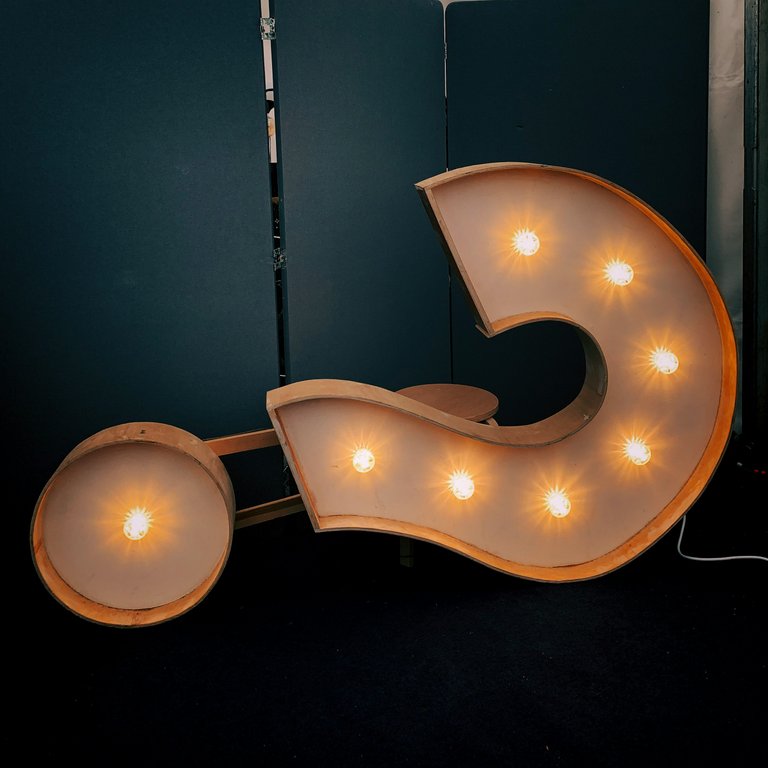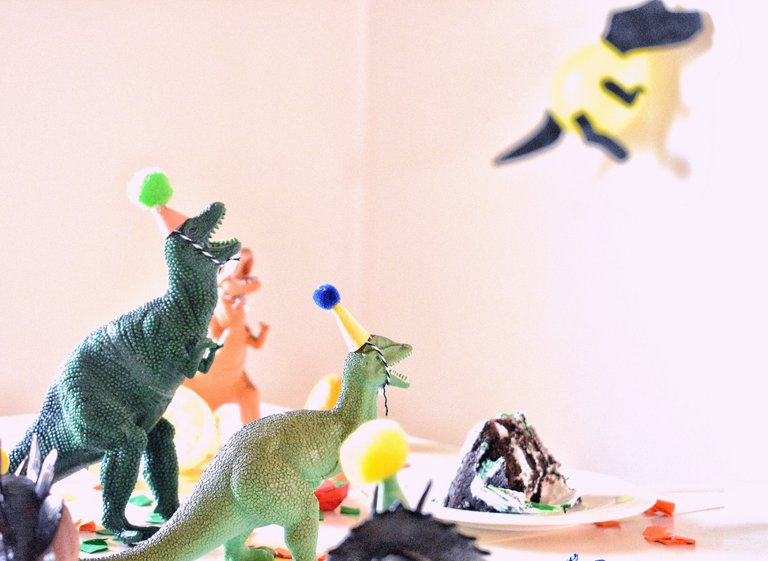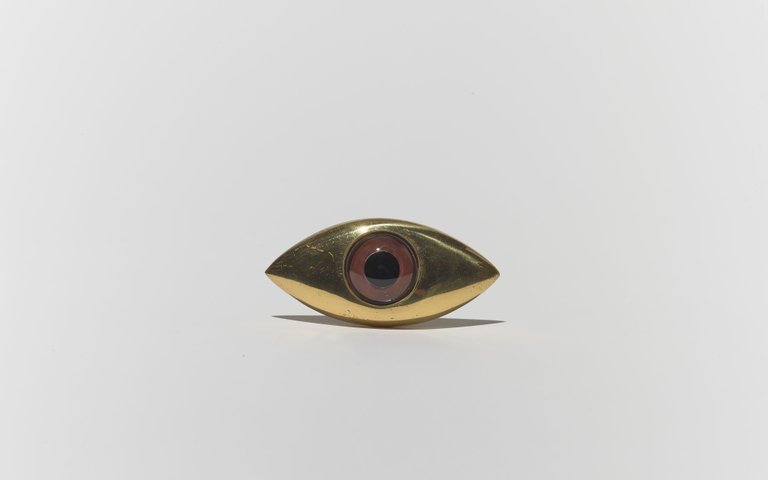 pic by Jon Tyson, Unsplash
pic by Jon Tyson, Unsplash
Hello Hive community! Hope your weekend was fine! Mine was filled with research and... cleaning the house, cooking and discussing the upcoming EU elections with my boys.
Weekend Research: We are Museums Community
I'd like to share the research part of my weekend with you. Because it is about the #makdao project and about the huge challenge we are about to enter. I was invited into a discussion round of an organization called "We are Museums" that has created a Lab for Museums together with the Tezos #Blockchain. Very much in the spirit of #decentralization and community, I joined the We are Museums #Community on a very nice looking app called "Mighty". I joined Demo Day of the We are Museums Community Lab (WAC-Lab) and listened to the various Museum project presentations that promised improvement through the use of blockchain. Almost all of them talked about how artists should be onboarded to #web3 or how #NFTs of a virtual museum building would attract donors, by the #ownership of a piece of the building's digital twin. My thoughts on that: Interesting, how museums always seem to struggle with their value proposition.
Back in the We are Museums community app I wanted to look into the Lab's recorded sessions but a paywall asked me for an annual fee. (No comment on creative commons... oh museums, you have a long way to go yet.) However the app suggested joining another lab for free. It's title read: Museums facing extinction.
 pic by Joyce Adams, Unsplash
pic by Joyce Adams, Unsplash
Museums Facing Extinction
The title made me laugh. I thought, wow that's a critical approach. Museums discussing their looming extinction. But no, the article was about what museums could do to participate in the awareness campaign for climate change.
I couldn't let go of my interpretation: What if museums faced extinction?
The questions kept popping up:
- What if the museum's funds were cut tomorrow?
- What would the museum board do next? - Sell artefacts? - Raise ticket prices?
- What is it that a museum possesses that is needed by a potential audience?
- And to quote from a discussion I had last week: Who is the owner of these historical artefacts, and what is the museum's role?
- What would an audience want a museum to do and show if it was asked to participate? (And I mean really participate, not the sort of gamification of entertainment that is discussed by so many museums: build an NFT, make people use it, give them a badge, send them a newsletter, make them win an annual ticket.)
 Carl Auboeck II, Archive 1952, bottle stubble, MAK (c) Christian Mendez
Carl Auboeck II, Archive 1952, bottle stubble, MAK (c) Christian Mendez
The audience is the most important stakeholder of a museum.
Yet, it seems to be the most ignored group in terms of #integration. To me it seems museums avoid one of the core questions within a business model: that of the role(s) they fill for their audiences. Museums are much more than a series of exhibitions, they in general are a huge container of #knowledge. Unfortunately this knowledge is mostly too abstract for people.
All this despite the fact that education happens in museums. Yet, most people I know think that museums are old-fashioned and outdated. (And they are usually closed when people have finished work.)
All these beautiful buildings and places should be buzzing with people who are meeting to discuss the latest developments and changes in their environment.
How come people team up in cafés, meet in parks but never gather in museums?
In my opinion all these things are due to a high degree of abstraction that totally misses the audiences' needs. In business it is called a product market disconnect. Producing services and products that the company thinks are needed without checking the market needs.
So my question is not how to take action, my question is instead:
- How can we create love for #nature, #science, #art and the constant changes in our #society using the resources of our museums?
- And as a consequence: How can we offer comfort in the insecurities of life itself?

If you are ready to discuss this, please follow the link to MAK DAO's discord channel and meet me on Friday night June 7 at 6pm Central European time in the stream room. >> https://discord.gg/h8GksQKAHs
Probably I will not be able to join the discussion this Friday but I want to share my thoughts here. Even though I could miss the point of your post and discussion and that I only talk from my experience. I know that there are museums that do the things already, I write below but big museums like the Kunsthalle Hamburg are missing these:
I always wonder why museums do not exhibit more art of unknown and contemporary artists. Back in the day museums were more adventurous, buying the art of unknown artists or that are not aligning with the current political landscape. They gave abstract artists a stage when abstract artists had not been very popular or German museums buying French art at a time when both countries were not very friendly to each other.
Also, the art does not have to be from an extreme level of craftmanship or of a well-known artist. Museums should also give these artists a stage. They could make a contest for the common people or pick contemporary artists, rent a few art pieces of them (for way less than these 10k paintings..) and show them to the public. Also, every city has its local heroes (designers, graffiti artists etc.) that could attract more people when they get a stage.
With the right marketing, this can bring people to the museum because they want to see the art of their family members, friends, and idols in the museum.
The prices are just too high. I understand that a museum needs to bring money in but 16€ for gathering in a museum? Not working. Maybe a happy hour after people left their work could help with that and a good offering of food and drinks. Also drinks are usually not allowed in the rooms where 1600 art is hanging. But maybe there could be solutions.
I know a lot of people who love to go to a museum and are willing to pay high entry fees. The thing is that these museums do not change very often. If you have been to one already (and you are not going because of the atmosphere of a museum in general), then you'll probably not go again in the next year or so. Even if they do these special temporary exhibitions - I think >10€ is too much to see 1 or 2 new pieces more this time.
In conclusion: I think museums should and need to change more over time if they want to keep the prices high. They need to bring in small unknown contemporary artists to give them a stage and by this attract more visitors. There is so much amazing art out there that is hidden on shelves, social media feeds and unknown Etsy shops. And art is everywhere - pottery, statues, drawings, paintings, music, ... Speaking of "music" - small concerts maybe?
@tibfox wow thank you for your long and thoughtful answer! I hope you can make it to the discussion on Friday, I feel that this topic could be something we could use as a DAO to start. After all we all are some museum's audience and we know what we miss and what we like!
I was a bit provocative stating that museums are oldfashioned and outdated. Not all of them are. We have a beautiful children's museum in my home town which has amazing, prize winning exhibitions for children up to 10 years. But after that the field becomes quite scarce. Although I believe it would be so easy! There is so much knowledge in the collections of museums, so many stories to be told. However, I believe that tech, nature and science have a better standing in engaging young people and audiences in general.
It becomes trickier when museums cover art - historical art, contemporary art, national art, applied art, they have a harder time "selling" their exhibits to the audience.
There are of course exemptions to the rule, pity I didn't make it to Kunsthalle Hamburg, time was too short.
What I learned from working with MAK there are many donors to please, who make the most powerful group within stakeholders, although they represent a minority. Also, museums in Austria at least have a clear positioning or mission. Galleries feature young, unknown artists, and if they reach a certain recognition (= value of works measured in cash) they might be invited to contribute to a museum's exhibition. The MAK only purchases pieces that have been produced for one of their exhibitions by an artist, they do not commission works. And they only collect what is recognized (see above). A curator might fiercely contradict the "recognition" part as they are part of the recognition system. Still, they have expertise, only they seldom share it but own it.
Another aspect is that museums are funded by either foundations usually based on private collections or they are funded by the state. In Austria the state is like a VC. My capital, my rules.
But there are other models and I think we should also discuss how a DAO could be structured to create and own something equivalent to a museum. After all a museum is just an extensive collection with a purpose.
In my view museums work a bit like politics: everyone knows that there has to be change within the system, everyone talks about it but in the end everyone agrees to stick to business as usual.
I believe we as a DAO can break through these restrictions and system boundaries, as we are not bound by them. And in creating something new, we could address the established institutions. Just like the MAK.
I don't speak English, but I use a translator
When I go out I like to visit museums, see the works, I wonder what the artist was thinking when he created it, what would be his inspiration, what is the history of the painting, what would his personal life be like, etc.
I think museums should open their doors to the new, inviting unknown artists who are innovating, have a room to show NFTs. Give workshops, courses on art, open a website, offer immersive experiences, adapt to the new and preserve art for future generations.
I invite my son @acont who speaks English to be present on Discord, he loves museums
@eve66 thank you so much for your inspiring answer. If it is ok with you, I will put your answers on the board of ideas I am going to create from the input we are receiving. What is your native language, maybe we can cover it to keep you within the discussion? Could you maybe give an example of your favorite museum/exhibition and comment in the related post: https://ecency.com/hive-158694/@elmirabear/what-s-your-favorite-museum?
Happy to keep in touch and looking forward to your contribution!
Gracias @elmirabear mi idioma es el español, si por supuesto puede usar las respuestas.
Congratulations @elmirabear! You have completed the following achievement on the Hive blockchain And have been rewarded with New badge(s)
Your next target is to reach 20 posts.
Your next target is to reach 2000 upvotes.
You can view your badges on your board and compare yourself to others in the Ranking
If you no longer want to receive notifications, reply to this comment with the word
STOPCheck out our last posts:
Trying to work my way through the challenges. 😅
What a museum can do? Ask the audience what they want to see, not desperately try to bring the audience to the art the museum likes. Create polls and bring the results out into the public room.
I think this post and the discord call is exactly about "asking the audience"
Yes, but the post and the stream didn´t come from a museum official, right?
Best example: Instead of asking the audience, museums ask "about what museums could do to participate in the awareness campaign for climate change."
So they misuse their public authority and reputation for joining the propaganda force. Just disgusting.
Just my two cents on the term propaganda: The word propaganda means the dissemination of political views, worldview or opinions. Climate change is a scientific fact. Not an opinion - the opinion however is how bad it is going to be - there even scientists disagree. What we all should be aware of: It's going to change for the worse as much as we know at present. Some living species will face extinction. But - and here I do agree with you, if we engage on the topic we should be sincere. And not follow the next hype that someone cooks up, because that's where the propaganda starts.@stayoutoftherz What you are saying is so easy and yet complicated. Audiences want a lot of things, so asking them is always dangerous. They are a bit like children, very volatile and easily influenced. However, I agree that audiences have to have rights. Just think about creating free admission to the resident collections that change periodically. The museum could still commission or rent exhibitions on special topics, and ask for an entry fee. I believe the building should be more like a meeting place and less like a sacred vault. Some museums show that the first can be accomplished easily.
Als naturliebender Naturwissenschaftler ist meine Meinung zum Klimwandel diese: https://peakd.com/hive-121566/@stayoutoftherz/re-beesmartblog-sejsn6
Loving and observing nature is wonderful. Although we, as a species, haven't learned everything about nature and there are still many unanswered questions, it's clear that you don't need to understand, say, the ecosystem of a lake to harm it. Simply dumping sewage into it disrupts the balance. We destroy more than we repair, and this will cost us more than we can imagine. We don't control climate change; we contribute to it through extraction without giving back.
Yes, but it is not right to reinforce restrictions on the way people are living just based on lies and flawed mathematical models and disguised as "science". All the climate models have turned wrong, in South America there is now snow, the first time since 40 years, temperature measures are manipulated, key influencers like the effect of clouds, of the sun cycles and many others are just ignored, all focuses on CO2 while the rain forests are still destroyed. We need environment protection, not climate protection!
@all: The meeting is at 6 pm UTC+2 to be clear, that is Central European Summer time. Hope to see some of you on Friday night!
👍